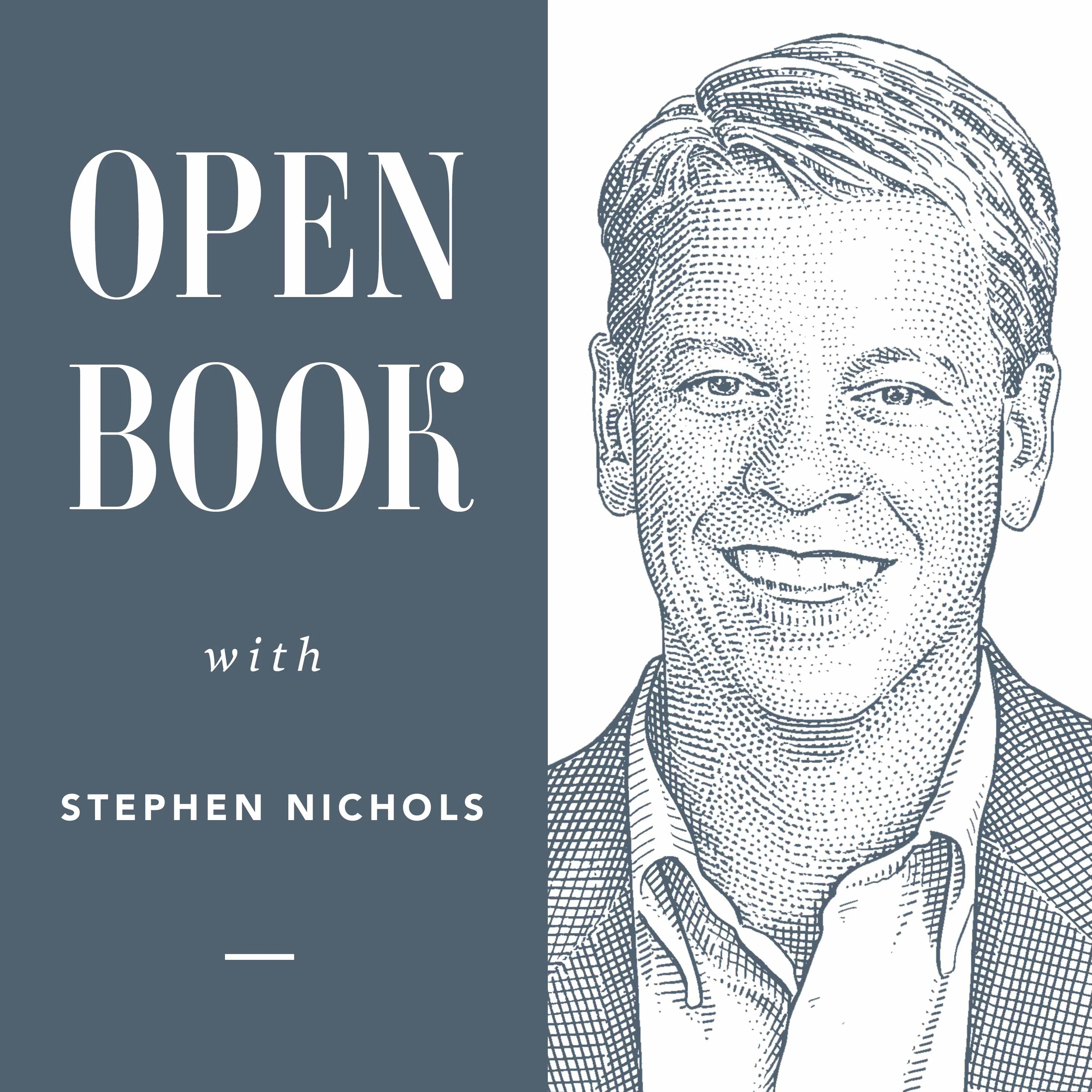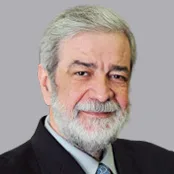Augustus Nicodemus Lopes on Calvin’s Institutes of the Christian Religion

Expecting academic dryness in the writings of John Calvin, readers are often surprised by his pastoral warmth and memorable insights. Today, Stephen Nichols and Augustus Nicodemus Lopes discuss Calvin’s Institutes.
Dr. Stephen Nichols: Welcome back. It’s our second episode in this season’s Open Book. We are sitting with Dr. Augustus Nicodemus Lopes, and as we spent time with him last week, we learned that reading a sermon prompted him to go to seminary after all. So, I have a hunch this next book we’re going to be talking about might’ve been a textbook for you at seminary. Is that the case?
Dr. Augustus Nicodemus Lopes: That’s right. That’s right, Dr. Nichols.
Nichols: So, this of course is none other than Calvin’s Institutes of the Christian Religion.
Lopes: Yes.
Nichols: You read it in English?
Lopes: No. I’ll tell you something. At that time, when I went to seminary, that was the beginning of the eighties. There was very little Reformed books available in Portuguese. The Reformation did not come to Brazil fully until twenty-five, thirty years ago, I should say, even though the Presbyterian church is 160 years old. But the kind of Reformed faith that came, the kind of Presbyterianism and Reformed faith that came down to Brazil was something that was mixed with the revival ideas of Finney, the mystical ideas of the Methodists.
And so, the early missionaries, although they were from a Reformed background, they were not fully fledged Reformed, if you understand what I mean. So, they would believe that God had his elected, but they were more interested in just preaching and trying to plant churches. And it was very little. So, I had to read Calvin in Spanish.
Nichols: Interesting.
Lopes: It was not translated into Portuguese. Spanish is close enough so that we could read Calvin and understand a little bit. For instance, Berkhof, which was our book on systematic theology, also was in Spanish. It was not even in English for us. So, I had to read Calvin’s two volumes of the Institutes in Spanish. I still have the original version I read with all the notes and everything that I made in seminary.
Nichols: Now, are the notes in Portuguese or are they in Spanish?
Lopes: They’re in Portuguese.
Nichols: That’s great. And you could probably translate them into English for us these days.
Lopes: Oh, yes.
Nichols: Well, before we jump into Calvin’s Institutes, you spoke recently in the chapel at Reformation Bible College, and you gave, I thought, a great story of your time at seminary that involved the president of the seminary. Could you tell that story to us?
Lopes: Yes, you know, I had become in love with one of his daughters, and then he found out I was entering the seminary. It was my first year, and then he called me at his office, and he said that he knew my intentions, that I wanted to marry his daughter. He was not against it, but then he wanted me to read something. Then he showed me Galatians 2:20. That says, “Not I but Christ,” in a way that he prayed for me so that I would be as humble as that verse would say.
And then after that, he turned to me and said: “I’m going to make your life miserable the four years you’re going to stay here. I want to treat you in a more strict way than any other of the students so that I will not be open to the criticism of your being my favorite student.” And so he did. It was four years of very hard work. He did not give me any, how to say, favor or facilitate anything. I was treated just like any other student, even harder a little bit.
Nichols: This sounds like an Old Testament episode that I think was seven years and maybe times two, but very similar.
Lopes: And you know, at that time, he was publishing his doctoral degree on church history of the presence of the Dutch people in Brazil in the sixteenth century, actually sent by Calvin, the Huguenots that came to Brazil. And then his Portuguese—he’s Dutch—his Portuguese was not that good. So, I had to read and help him to translate. That was like part of my work before I could marry his daughter.
Nichols: Indentured service. So, tell us—so your wife is Dutch.
Lopes: She’s Dutch.
Nichols: And she has a very Dutch name.
Lopes: Oh, very Dutch: Hendrika Hermina Schalkwijk.
Nichols: And you contributed to her name?
Lopes: Yes, she had to add a Lopes at the end. It spoiled such a good Dutch name.
Nichols: Well, you mentioned the Huguenots. They were sent from Geneva to Brazil in 1555.
Lopes: That’s right.
Nichols: This is just remarkable that there’s a Reformed presence in Brazil—even before there’s a Reformed presence in North America there’s this Reformed presence in South America in Brazil.
Lopes: And actually, the first Reformed confession ever made was made by them in Brazil because they were threatened by the Roman Catholic governor of Brazil at the time. So, this guy told them—the pastors, the Huguenot pastors—“You have to write your confession, what you believe, so we can judge you.” So, one overnight, something like that, they wrote the Confession of Faith of Guanabara, which is the name of the place where they were. And some, they were kicked out, some were killed, others were put in the boat back to France. And there is just one that remained because he was a shoemaker, and they needed a shoemaker. So, the others were killed or sent away. But then it was the first Reformed confession ever made.
Nichols: That’s great. In Brazil.
Lopes: Yeah, in Brazil.
Nichols: That’s wonderful.
Lopes: It’s a pity they could not stay.
Nichols: Did something stand out to you from those years of reading Calvin’s Institutes?
Lopes: Yes, as everybody else, I thought that Calvin would be dry, would be a very, how to say, very dry theologian—no pastoral tone, just a theologian.
Nichols: Heady and academic.
Lopes: Yeah, like that. So, I was caught by surprise as I started reading Calvin. And not only he was very pastoral and clear, but he was relevant. I could understand then why his commentaries and his Institutes are still being published much more than any other Reformer.
And I started to use Calvin’s insights in preparation of my sermons and in my own personal life. At that time I was becoming Reformed, Calvin helped me to frame my mind, I mean, to put things in the right place and to understand how the doctrines—sovereign doctrines of grace—they fit in my daily life, my preaching, and everything. So, Calvin was very refreshing, a blessing, all the two volumes, every chapter, every theme he addressed, he was so fresh, how to say, biblical.
And he knew the languages. I mean, I was very interested in the originals since I started seminary. And he was able to quote, to exegete, and do everything. He was a full-fledged scholar in every way. He could quote the Fathers, and he knew philosophy. He knew writers who were not Christians. And so, I was so impressed, and I’m still impressed with his scholarship. And his biography—he lived so short a time. If he had a computer . . .
Nichols: . . . imagine what he could have done.
Lopes: So, Calvin was—the Institutes really—were very influential in my life.
Nichols: Well, we’ll take that endorsement of the Institutes. You know, I do think some people may think, “Oh, I’d love someday to read the Institutes,” but they just may feel intimidated. And I hope those words you just said would be a real encouragement to them to just take it off the shelf and begin.
Lopes: You know, there are a lot of people that do a lot of criticism about Calvin but never read one page of what he wrote.
Nichols: I think that’s true. Well, Dr. Nicodemus, thank you for being with us. Thanks for taking us back to Calvin’s Institutes and back to the memories of your seminary days, where you had to earn the favor of your father-in-law for your lovely wife. So, we’re glad that all turned out well for you.
Lopes: Oh, it did. We married after four years and have been married for forty years now.
Nichols: That’s great. What a great ending. Well, thanks for joining us for another episode of Open Book. We’ll be back next week with a brand-new episode. Thank you.
I’m Steve Nichols, and that was another episode of Open Book. Open Book is a podcast about the power of books and the people they’ve shaped. If you’ve enjoyed this episode, please leave a rating or review wherever you’re listening. It’s the best way to help others discover us. We’ll be back in the library next week, so please join us again for another episode of Open Book.
Recent Episodes
Augustus Nicodemus Lopes on Renewing Your Mind
June 27, 2024|Theologians
Augustus Nicodemus Lopes on Pearcey and Thaxton’s The Soul of Science
June 20, 2024|Apologetics
Augustus Nicodemus Lopes on Ridderbos’ Paul: An Outline of His Theology
June 13, 2024|Biblical Theology
Augustus Nicodemus Lopes on Lloyd-Jones’ Preachers and Preaching
June 6, 2024|Christian Classics
Augustus Nicodemus Lopes on Spurgeon’s Lectures to My Students
May 30, 2024|Christian Classics
Augustus Nicodemus Lopes on Packer’s Evangelism and the Sovereignty of God
May 23, 2024|Christian Classics

